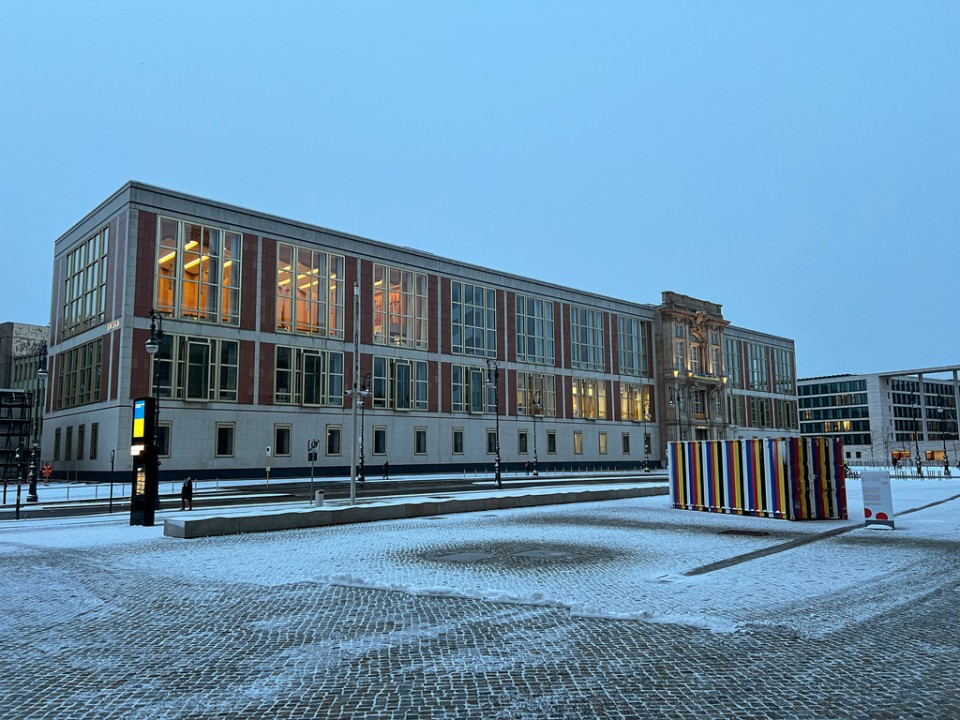Integrating Business Strategy, Economics, and Marketing: A Reflection on my second EMBA Residency at ESMT Berlin
Participating in the second EMBA residency provided a comprehensive immersion into the multifaceted world of business strategy, economics, and marketing. The residency experience served as a bridge between theoretical knowledge and practical application, offering valuable insights into the dynamic interplay of these crucial components in the business landscape, I will be able to directly apply my learnings to my business in the short term, particularly on the marketing efforts and business strategy validation.
Business Strategy
The residency’s focus on business strategy was enlightening, emphasizing the importance of aligning organizational goals with a well-defined strategic vision. The case studies and interactive sessions highlighted the significance of adaptability and innovation in today’s fast-paced business environment. The strategic thinking exercises challenged my preconceptions and encouraged a holistic view of the competitive landscape. I learned that successful strategies are not one-size-fits-all; they must be tailored to a company’s unique strengths, weaknesses, opportunities, and threats. The highlight of the course to me was the Renewable Resource Management Simulation, where we could apply as a team a long-term business strategy to keep a business running in a environmentally sustainable way, even though in the end we weren’t able to make it environmentally sustainable as a cohort. Special thanks to professor Chengwei Liu for sharing his knowledge, I was lucky to win one copy of his book: “Luck: A Key Idea for Business and Society” and fortunate to have it sign by the author himself :). My favorite session: Contrarian Strategy.

Microeconomics
The economics segment of the residency deepened my understanding of the microeconomic forces shaping a business. Exploring economic basis to understand markets was an enriching experience due to my engineering background. The integration of economic principles with real-world examples illustrated the intricate relationship between economic factors and business performance. The residency fostered a critical appreciation for the role of government policies, international trade, and economic indicators in shaping market strategies. The car rental simulation helped me understand what variables play on pricing strategies and how you can apply economic principles to optimize profit for your business. Special mention to Michał Grajek for letting us ruin a business and getting it back from loses to being profitable in the simulation session.

Marketing
The marketing component of the residency emphasized the crucial role of customer-centric approaches in achieving business goals. The sessions in segmentation, and positioning provided practical tools to identify and capitalize on market opportunities. The incorporation of digital marketing trends highlighted the evolving landscape and the necessity for businesses to embrace technology for effective communication and engagement. The residency underscored the importance of creating and sustaining a strong brand identity to foster customer loyalty in an increasingly competitive marketplace. This course to me was an eye-opening experience since I am implementing a marketing strategy for my own company. (My personal) key learnings from Damien McLoughlin marketing sessions:
- Align brand, purpose and strategy
- Do things better than anybody else
- Mental and Physical availability
- Create Distinctiveness
- Customer is CEO’s responsability
- Speak CEOs/CFOs language (profit, cost, revenue)

Connecting the dots
One of the most valuable aspects of the residency was the seamless integration of business strategy, economics, and marketing. The interconnectedness of these disciplines became clear as we delved into case studies that needed a multidimensional analysis. The interdisciplinary approach helped me appreciate how strategic decisions impact economic outcomes and marketing effectiveness. This holistic understanding is crucial for developing a well-rounded business acumen that goes beyond compartmentalized thinking. I was able to apply principles from business strategy to marketing to economics in the different group activities during the residency. Finally, kudos goes to my teammates: Marta Bochenska-Pachuta, Azheem Haseeb, Benedikt Stute, Florian Kellenberger and Miroslav Iacovlev, for making every residency an incredible experience.
Conclusion
The second EMBA residency provided, once again, a transformative experience that allowed me to synthesize and apply knowledge from business strategy, economics, and marketing. The strategic, economic, and marketing dimensions are not isolated silos but interconnected components that contribute to the success of a business. As I reflect on the residency, I am confident that the insights gained, and skills acquired will be instrumental in navigating the complex challenges of the business world. This experience has not only broadened my perspective but has also equipped me with a strategic mindset to thrive in an ever-evolving business landscape.

